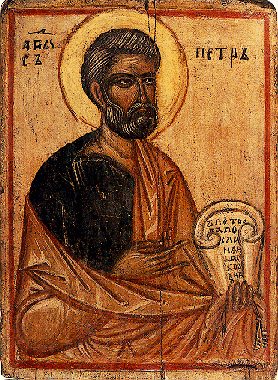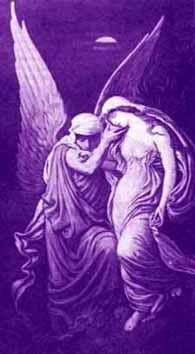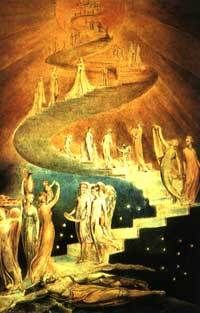Why are They Important?
The question often asked by casual readers is simply, "What do the Dead Sea Scrolls say?" Again, there is no one answer to that question.
The texts are diverse, they apparently do not speak with a single voice, or from a single viewpoint.  Most of the manuscripts found are heavily damaged fragments of scrolls, some very tentatively pieced together. Often the preserved scraps give only glimpses of what existed in the original text.
Most of the manuscripts found are heavily damaged fragments of scrolls, some very tentatively pieced together. Often the preserved scraps give only glimpses of what existed in the original text.
Readers approach the Dead Sea scrolls from a variety of perspectives and with differing interests. The texts "say" different things to different people. For students of Hebrew literature, the biblical texts and commentaries preserved in the DSS collection offer the opportunity for textual research using early and previously unknown source documents. Experts in paleography find in the Scrolls material for analysis of developing and changing Hebrew writing styles. Specialists in the history of Judaism find documents in the collection that shed new light on the diverse and heterodox trends present in Judaism during the intertestamental period. Students of Christian origins see in the texts evidences of the apocalyptic, messianic foment from which Christianity arose.
While the DSS certainly do offer insights into the Jewish cultural milieu that gave formation to Christianity, there is probably nothing in the Scrolls collection directly reflecting events or personages known to early Christian history.
After fifty years, it is still difficult to say how future scholarship will judge the importance of the DSS discovery. Several individuals now suggest the Scrolls are globally less important than implied by decades of relentless publicity. Consider the balancing and sobering appraisal given by Dr. Eliezer Segal (Professor of Religious Studies, University of Calgary) in his 1994 article titled "The Dead Sea Scrolls Dud":
Coming from someone who makes his living from the study of ancient Jewish texts, it might surprise some readers when I declare my conviction that the Dead Sea Scrolls are not all that important, and that their impact has been inflated out of all proportion by the media and various interested parties.
The intense public fascination with the Qumran scrolls was fueled by the expectation that documents contemporary with the beginnings of Christianity would provide valuable–or even revolutionary–new insights into the origin of that religion.
The Christian scholars who controlled much of the research into the scrolls made every effort to uncover allusions to Christian concerns, and tiny fragments were fancifully pieced together so as to produce theological statements about divine or suffering messiahs. The archeological site at Qumran was even described as if it had housed a medieval European monastery.
These dubious conclusions have been utilized both as confirmation of Christian tradition and as refutations of its uniqueness or originality. Either way, they succeeded in transforming the esoteric world of Dead Sea Scroll scholarship into a lucrative industry whose potential market included much of the Christian world.
Not surprisingly, almost none of these alleged Christian links find factual support in the evidence of the scrolls. The simple truth is that the scrolls contain a representative sample of the diverse literature that Jews were producing during the latter part of the Second Temple Era, a time marked by factionalism and ferment in the Jewish community of Eretz Yisrael. As such, they reflect typical Jewish concerns, most notably in the area of halakhah, Jewish religious law, which, then as today, ignited the most virulent controversies between competing sects. These simple and obvious facts rarely get mentioned in the popular representations of the scrolls.
The scrolls do enrich our knowledge of a very complex time in Jewish history, though much of this knowledge is of value only to scholarly specialists, and even their more substantial contributions (in such areas as the development of the Hebrew language and Jewish legal exegesis) are unlikely to sell a lot of newspaper tabloids or TV sponsorships. (JFP, Aug. 25 1994, p.9 – text available online)
Popular interest in the Scrolls has been manipulated by suggestions – encouraged by at least some of those who once controlled DSS research – that the discovery would shed a startling new light on the origins of Christianity. Of course, the original hypothesis about the Scrolls and the Qumran community appeared replete with just such promising possibilities for Christian-focused scholarship. Dr. Theodore H. Gaster (Columbia University) expressed the tenor of such scholarship in his 1957 publication Dead Sea Scriptures, explaining to readers that the Dead Sea Scrolls "furnish a picture of the religious and cultural climate in which John the Baptist conducted his mission and in which Jesus was initially reared...and whose religious ideas served largely as the seedbed of the New Testament." Many Jewish scholars have rightfully resented this focus and bias.
Having spent many years studying early Christian history in light of the Nag Hammadi texts (the "other" collection of ancient religious manuscripts discovered contemporaneously with the Dead Sea Scrolls), it has always seemed ironic to me that the Scrolls attracted so much of this kind of publicity, while so given to the Nag Hammadi materials. Fifty years after their discovery, however, a more balanced perspective is developing towards both sets of documents: The Nag Hammadi library is attracting increased interest, while once inflated expectations about the Dead Sea Scrolls are being properly moderated.
– Lance S. Owens
The Dead Sea
Scrolls Collection at The Gnostic Society Library










No comments:
Post a Comment